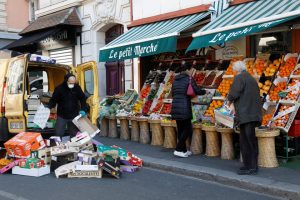
France Bans Plastic Packaging for Fruits and Vegetables
PARIS, Oct 11 (Reuters) – France will ban plastic packaging for nearly all fruit and vegetables from January 2022 in a bid to reduce plastic waste, the environment ministry said on Monday.

PARIS, Oct 11 (Reuters) – France will ban plastic packaging for nearly all fruit and vegetables from January 2022 in a bid to reduce plastic waste, the environment ministry said on Monday.
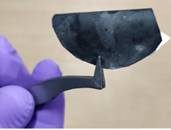
Indian scientists have developed a composite paper made of carbon (graphene oxide) loaded with preservatives that can be used as wrappers to help extend shelf life of fruits. Unlike the present preservative dipping technology, where the preservatives are adsorbed by the fruit, causing chronic toxicity to the consumers; here preservatives the wrapper releases the preservative only when needed. The wrapper can be reused, which is not possible with the present technology.
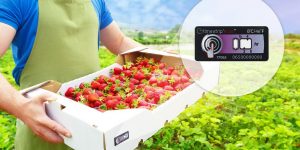
Fresh produce degrades much more rapidly as temperatures rise. Cost and complexity of existing data loggers limit their use to pallet or container level. Low-cost liquid indicators can provide temperature / time monitoring down to the smallest packs, ensuring product quality is maintained throughout the lengthiest supply chains.
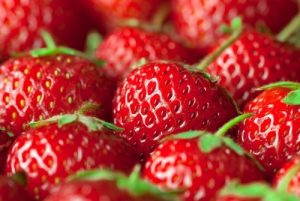
Belgian fresh fruit and vegetable auctioneers Coöperatie Hoogstraten has worked with RFID technology supplier Aucxis to provide visibility and to track the movements of its strawberries throughout the supply chain. The system enables it to ensure fast and efficient delivery of its empty cardboard trays and punnets to growers for packaging the fruit.
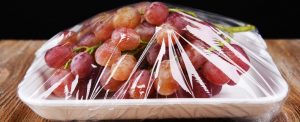
Tipa’s compostable packaging performs like a conventional plastic but decomposes in compost back into the soil with no toxic residue, microplastics or other pollutants. Its packaging solutions can also fit with industry machinery and manufacturing practicesThe company said the market is expected to increase from US$160.8bn to US$200.5bn by 2025.

Zespri International— world’s largest marketer of kiwi fruit states that India is the strongest emergent market for kiwis adding that among all exotic fruits, Kiwi has witnessed the fastest growth, with a compound annual growth rate of 80-100%. Therefore, packaging for higher quantities of kiwi emerged and became a significant factor in its consumption growth.

Smart Plastic additives are inserted into the production process in very small percentages along with other standard ingredients. These additives transform the plastic into a powerful agent that is highly effective against salmonella, listeria, E.coli, MRSA, and dozens of commons dangerous organisms.
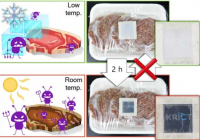
A team from the Research Centre for Bio-based Chemistry at the Korea Research Institute of Chemical Technology (KRICT) has developed a cold-chain safety sticker based on nano-fibre technology. The sticker indicates whether any cold-chain food products, such as fish, meat, or fruits and vegetables, may have spoiled, by being exposed to temperatures outside the permitted range.
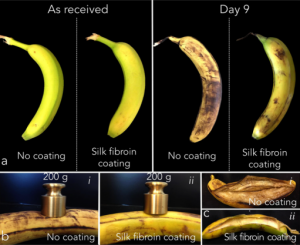
Cambridge Crops develops an edible, imperceptible coating that might replace plastic packaging to preserve meats and produce.

Scientists at the National Agri-Food Biotechnology Institute (NABI) based in Mohali, India, have developed non-toxic, edible coating materials to improve shelf life of fruits & vegetables based on wheat straw hemicellulosic polysaccharide (WP) and stearic acid derivatized oat bran polysaccharide (SAOP) that promise to overcome the problems of highly perishable produce going bad before reaching the consumer – currently running at 25-30 percent in that country.
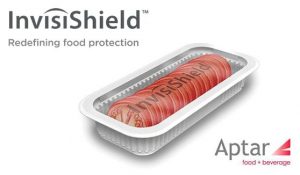
InvisiShield uses a patented 3-Phase Activ-Polymer technology to reduce 99.9% of pathogens in sealed packaging.

US-based Aptar Food and Beverage, a part of AptarGroup, has unveiled an anti-pathogenic packaging solution to protect fresh cut produce.